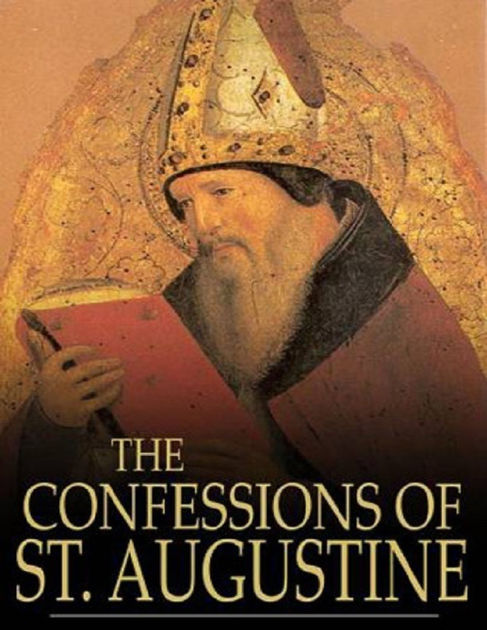|
The Confessions of Saint Augustine
by Saint Augustine of Hippo Published in 397 AD 464 Pages Thibault’s Score: 3/5 The Confessions of Saint Augustine is an autobiographical series of 13 books where he writes about living a sinful and immoral life, and his spiritual reception. St. Augustine was a Roman who wrote in the twilight days of the empire. He wrote at a time when barbarians were invading the borders, emperors engaged in rapine and debauchery, and the very foundation of the government was collapsing. During the chaotic and unsettling times of St. Augustine, many Romans found peace in religion. I decided to read this book to better understand the historical context surrounding the conversion of the Roman Empire to Christianity. The autobiography begins with St. Augustine’s birth, and follows his life recounting various events such as his conversion to Manichaeism (a porto-Christian religion heavily inspired by Zoroastrianism). The initial chapters, where St. Augustine describes his infancy is odd, especially by modern standards. He immediately asks the reader if he is guilty for suckling his mother, crying, and demanding tasks from others as an infant. He then proceeds to describe his childhood, and expresses his guilt at not having been a better pupil or a calm child as a student. He then goes on to decry being lustful and stealing fruit in his adolescence. He then proceeds to feel guilty for falling in love, enjoying a theatric tragedy, and consulting astrologists. Essentially, the first 6 books are a deranged guilt manifesto, and are relatively content free. So far, my belief that Catholicism is a dangerous death cult has been strongly reinforced. St. Augustine is a deranged and emotionally volatile man. For example, he says at the beginning of book 3 that he loves to grieve: “But I, miserable, then loved to grieve, and sought out what to grieve at.” Finally, St. Augustine converts to Christianity and his mother dies shortly after. He then spends the rest of his life preaching the work of God, and attempting to redeem himself for his past sins. From a self-knowledge or self-help perspective, this book is likely counter productive. The philosophies of St. Augustine aren’t about action or improvement, but rather being passive, and constantly blaming one self. In many ways, this book highlights the proto-leftist tendencies of early Christianity. The historical content is important. It gives the readers and modern historians a good understanding of daily life in the late Roman Empire, and plainly describes many institutions such as the theater, gladiatorial combats, the cities of Carthage and Rome, the government and senate, universities, and many other Roman institutions. The other historical value comes from the evidence of the decline of learning in Rome. St. Augustine’s emotional writing style contrasts sharply with the rational and precise language used by pre-Christian pagans that I have read, such as Thucydides. While St. Augustine uses romantic flourishes and poetry, the Pagans would write using more objective language, and factually describe events. Overall, it has been nearly 1600 years since St. Augustine’s death, and I cannot fault him for his Christian meekness and guilt. This book should be read as a historical manifesto, not as a source of advice about life and spirituality. I recommend this book to three categories of people: historians of Rome, historians of Christianity, and right wingers who are unconvinced that early Christianity was a leftist philosophy.
0 Comments
Leave a Reply. |
Thibault SerletMost of my articles are book reviews, but I also write about many other topics. Archives
December 2023
Categories |

 RSS Feed
RSS Feed